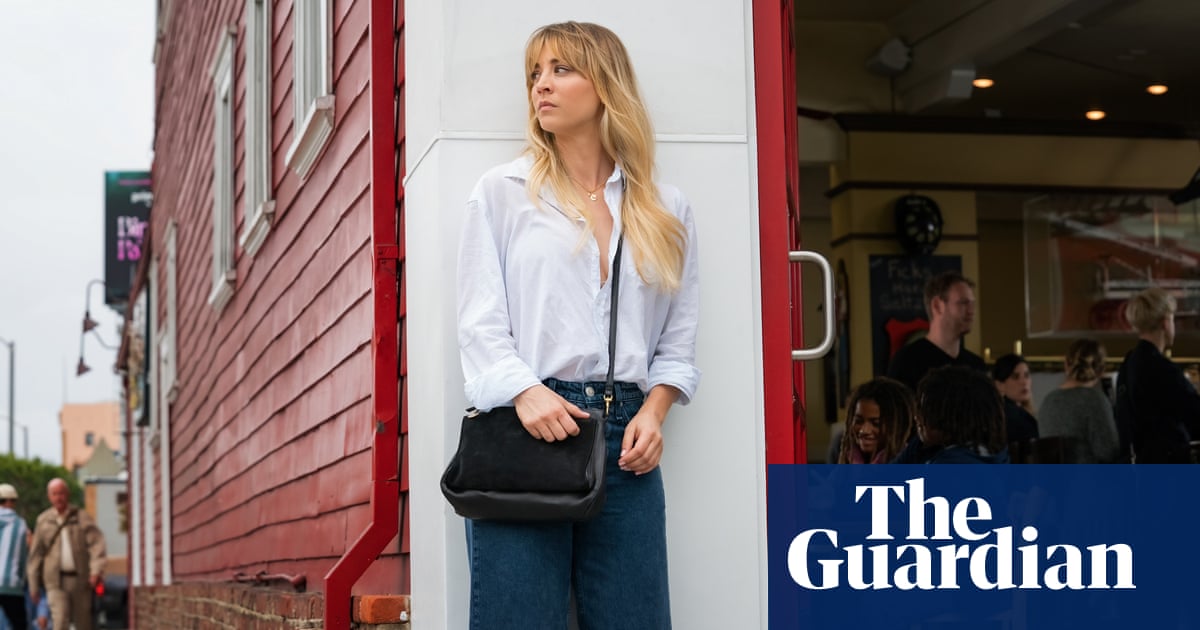
You booze you lose! The rise of sober-curious TV
“No one wants to hang out with the designated driver,” says functioning alcoholic Cassie in HBO’s The Flight Attendant. “You wanna know why? Because it’s boring.”
In the past, pop culture has not always been keen to tell sobriety stories. And perhaps that assumption is why. There is plenty of drama in blackouts, hangovers and bad behaviour, but the strict rules of recovery? In Cassie’s words … boring. Or even worse, preachy.
And yet, despite its protagonist’s concerns, the second series of The Flight Attendant is one of several TV shows, along with Disney+’s Single Drunk Female and BritBox’s The Dry, recognising that sobriety – and specifically female sobriety – can be a source of great TV.
In The Flight Attendant, Cassie (Kaley Cuoco) has made it one year sober and established a seemingly wholesome new life in LA, where the serenity is merely superficial. The Flight Attendant’s high-concept conceit – featuring fantasy sequences set inside Cassie’s head – has always been dependent on her being an unreliable narrator. But whereas the show previously used her drunkenness to achieve this, its second series applies the same level of interior scrutiny to sobriety as it did to addiction. Newly sober Cassie disappears into a hall of mirrors, her sense of self splintered into warring surrogates. There is the party girl she used to be; the traumatised teenager; the depressive who can barely engage; and a sanctimonious example of who she might be had she made better choices. In the middle of all their noise, the real Cassie doesn’t drink but does continue to put herself at risk, having replaced alcohol with something equally secretive and dangerous: being an asset for the CIA.

This rude awakening that sobriety does not solve the problems which alcohol once seemed to soften is also explored in The Dry, which sees 35-year-old Shiv (Roisin Gallagher) return home to Dublin, six months sober. With her family suspicious that her new identity as an addict is just another layer of self-absorption, Shiv discovers that her self-destructive tendencies have not retreated: even sober, she gravitates towards toxic relationships and bad decisions. She struggles to reconcile the idea of herself as an alcoholic with the image she has of alcoholism itself, crystallised by attending two very different AA meetings: one in the bougie suburbs full of people who don’t look like alcoholics, and one in the inner city full of people who, at least to Shiv’s mind, very much do. When she tries to leave, claiming she was just sussing out “the vibe”, the meeting leader reproaches her for treating AA like “an aerial yoga class”.
These shows come after an extended period of women drinking a lot on television. The girl-about-town glamour of Sex and the City shifted towards Scandal’s Olivia Pope and The Good Wife’s Alicia Florrick – successful, middle-class women for whom no rough day at the office was complete without pouring out half a bottle of bordeaux. It was also the era of the unlikable antiheroine, finally allowed to let her flaws hang out, including her capacity for overindulgence, in Broad City, Insecure and Fleabag. Aside from some glimmers of deeper interrogation of women’s drinking – Mickey in Netflix’s Love, Jessa in Girls and Tuca in Tuca & Bertie – it was rarely baked into the story as it was for male characters who drank too much (Hank in Californication, BoJack Horseman, pretty much everyone in Mad Men).
Now, we get TV shows that let us hang out with female characters as they try to fix their problem, such as Single Drunk Female. Partly based on the sobriety journey of its creator, Simone Finch, it follows twentysomething Sam (Sofia Black-D’Elia) as she moves home after assaulting her boss, losing her job and being court-mandated to attend AA. It is a comedy but sobriety is not the punchline. For Sam, getting sober is deeply annoying, sometimes oppressive and often extremely boring; that’s before we get to the unjustly extortionate prices of non-alcoholic alternatives at the bar.

There is a valid argument that Single Drunk Female moves too quickly through Sam’s story but, as with The Flight Attendant and The Dry, it never suggests that sobriety comes easily, unlike the clunkiness of Miranda’s drinking being resolved overnight – or at least between episodes – in And Just Like That … (Although this is a show whose last character with a drinking problem fell to her death from an open window).
Instead, for these women, sobriety is precarious, strained, hanging by a thread. Boundaries have shifted since they chose to give up drinking and they are left navigating entirely unfamiliar terrain, renegotiating every relationship in their lives. We bear witness to the exhausting effort it takes to balance perpetually at the top of a slippery slope, faced with family and friends who assume they can have “just one” or steeling themselves every time they hear the unmistakable sound of glasses clinking. Deciding not to drink is a choice these women have to make every minute of every day, time and time again.
In the past, stories have climaxed with the satisfying, familiar scene of a character uttering the words: “I’m X … and I’m an alcoholic.” With these sober-curious shows, that’s more often the starting point – and we’re staying in the room to hear what happens next.














